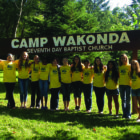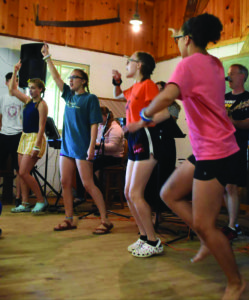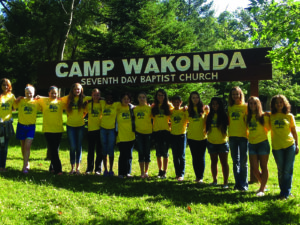
Feb 27, 2020
By Rev. Nicholas J. Kersten
In the summer of 1995, Alex Ferguson had a decision to make. His Manchester United soccer team was one of the most famous in the world, but they had not won a major competition the previous season, narrowly losing several close important games. Three of his best players were aging and nearing the end of their careers. Ferguson, as the manager, had to make a decision about these players: would he keep them and give it one more run, or would he get rid of the players and try new ones? In the end, Ferguson, now regarded as one of the greatest managers in the history of soccer, elected to sell his old standbys and play a group of precocious young players they had trained in their youth program instead. The move was widely questioned, with English television pundit Alan Hansen famously ranting, “you can’t win anything with kids.” Ignoring the criticisms, Ferguson’s decision was validated as Manchester United won their league that season, along with many other trophies in the years to come. Ferguson made a bold decision to play the kids (kids like David Beckham…perhaps you’ve heard of him?) and it paid off, both in the short and long term.
In this month’s Recorder, you’ve had the opportunity to read about SDB camping ministries and the impacts they’ve had on so many lives. But there is another quiet upside to the ways that Seventh Day Baptists have run their camping ministries: it has given our ministries a chance to “win with the kids.” In SDB camps, senior ministry staff have been aided by younger believers in a variety of roles. Whether it comes in the form of junior counselors or Summer Christian Service Corps students, we have routinely filled out camp staffs with talented young people who are put in positions of leadership and influence with younger students.
I suspect there are two reasons that younger leaders have been drafted into service at camps. The first reason amounts to availability, especially with summer camps: students with the summer off can spend a week away at camp without having to leave a “day job.” This makes plenty of logical sense. The second reason, however, is a bit more interesting.
Much has been made over the last thirty years of statistics which suggest that most conversions to Christianity happen before someone turns 18. This has led to a (correct) emphasis on children’s and youth ministries as evangelism opportunities. Often, this emphasis is on older adults and parents striving to share the Gospel with their children and youth, and that’s a perfectly understandable reaction. But in the camping environment, SDBs have either accidentally or purposefully stepped into another outreach strategy to reach young people: to see them reached by people their own age, or near to it. In our camping ministries, we trust believing campers to share Jesus with their friends both in word and deed, incarnationally doing life together during a camp. Likewise, students may hear the Gospel from someone younger and closer to their own age, which may help to raise their receptivity—teenagers hearing about the faith from a “cool” college-aged staff member or someone their age may get a very different reaction than hearing that same message from their parents.
But beyond the Gospel sharing opportunities, there is another important reason to bring younger believers onto camp staff: It is a great opportunity to disciple them in ministry work in an intensive and integrative way. Leaders get a chance to see young leaders in “real” life—a camp week grants the chance to see people up close and uncensored! For that reason, it’s a potent ground for leadership training, which many of our wise leaders have successfully used.
It may not only be in our camping ministries where we would be wise to make more concerted efforts to “win with the kids.” As our world changes, statistics show that the average age of church leaders is growing progressively older. Bringing younger people into leadership is a good long-term strategy. Despite cultural narratives about younger people, especially millennials, there is an abundance of evidence to suggest that younger generations care deeply about their world and will give sacrificially if they are listened to and they care about the mission. The next leader of your local church may be much closer than you imagine! Let’s give them the opportunity!
Information about Camp Wakonda at http://theconnecting.church/wakonda/



